In my career, I’ve enjoyed a fairly steady progression of achievement, growth, and leadership. I fancy myself to be a lifelong learner, hungry to attain new skills and hone the ones I have. I enjoy helping other leaders grow and develop, and I like to think I’m fairly intuitive when it comes to people’s emotions, motivators, and inherent coaching needs. Despite more than 20 years in the plaintiff personal injury law firm space, there are still moments when I doubt myself – when I feel myself being questioned or challenged and retreat to wondering if maybe I haven’t done enough. Maybe I am a phony who accidentally achieved this level of success, and my colleagues and clients will no doubt discover this in time?
There’s a name for that feeling: Imposter syndrome. It’s that nagging sense that maybe you’re a fraud…that belief you have fewer skills or less knowledge or experience than you need, regardless of an amazing track record. It’s not easy to just shed the feeling either, but it’s critical that you do. Living with a constant undercurrent of doubt leads to burnout, depression, and anxiety.
What is Imposter Syndrome?
The term was coined in the 1970s by psychologists Pauline Rose Clance and Suzanne Imes in a research paper. They broke it down into three main areas:
- Believing that others have an exaggerated view of your abilities
- Fear of being exposed as a fraud
- The continuous tendency to downplay your achievements
People who suffer from imposter syndrome often feel like their success is the result of pure luck or being in the right place at the right time. They struggle to accept that their accomplishments and career trajectory were the result of hard work, education, dedication, and ability.
Imposter syndrome can rear its ugly head at pivotal career moments, like when accepting new responsibilities, getting a promotion, changing roles, or changing jobs. Those critical moments can turn from times of celebration and achievement to overwhelming feelings of anxiety, self-doubt, obsession, and guilt.
For women, in particular, there can be a debilitating focus/obsession on ensuring everything is perfect or working twice as hard just to prove you belong. A significant majority of women who have achieved high levels of professional success report also experiencing imposter syndrome. In fact, often, the higher they climb, the more crushing the feelings of self-doubt and worthlessness become.
How, then, can you combat the imposter syndrome beast?
Reframe Your Thinking
If you find yourself diminishing your own accomplishments, questioning whether you belong, or overworking to prove you deserve to be where your education and experience has rightfully gotten you, try to reframe your thinking.
Instead of “I don’t know what I’m doing. I’m a fraud”, try “I don’t know what I’m doing, so I’ll make a plan to figure it out.” We all learn and grow, and there is so much beauty in admitting when acquiring a new skill or piece of knowledge would be helpful.
Instead of “self promotion,” try “self enthusiasm.” I love this one. It’s easy to deflect compliments or shy away from touting the things you’ve accomplished. I see people, particularly women, shy away from deserved praise. Instead of a simple, “thanks!,” we try to deflect, credit others, or pretend it wasn’t a huge deal to get that project across the finish line. Of course, give credit where credit is due. Acknowledge your incredible team. But don’t make yourself smaller. Be enthusiastic about your work and your achievements. Talk to yourself in the same voice you talk to other team members with when you help them celebrate accomplishments.
Instead of looking at setbacks as failures, try instead looking for the lessons. What did this experience teach you that is now a tool in your arsenal for next time? Be curious as to why something didn’t work. There are valuable lessons to be learned in examining the why with grace. It reminds me of the Edison quote, “I didn’t fail 1,000 times. The lightbulb was an invention with 1,000 steps.”
Focus on the Moment
Be present in the present. I can’t stress enough how helpful it can be to slow down and take a deep breath. This allows you to control your emotional responses and focus on the question, task, or problem at hand. It’s also helpful in dealing with imposter syndrome thoughts.
If you focus on the now, it allows you to be pragmatic about the current moment and situation. It means you don’t make space for worrying about what could happen or what someone might say. You simply acknowledge the reality of the present moment. This can be helpful in squashing thoughts of being sub-par or worrying about what people might think.
Track Your Wins
If you’ve spent time around any Vista team member, you know we love our reports. A good scoreboard helps a firm to see if they are winning or losing and gives a quick snapshot of firm successes. Think of your own personal scoreboard and track your wins! When you see your own career scoreboard, it can help you be more objective about all the amazing things you have accomplished.
Look at all those projects you had a hand in completing! Look at that class you took or the degree you received! Look at that person you helped mentor and grow into their potential! Look at that crucial conversation you skillfully navigated! You’ve done so much right to get where you are. Celebrate that. For those who love a spreadsheet, create one that you keep open on your taskbar. Track the projects you complete and the tasks you did to get them accomplished. This becomes a running list of your achievements.
Surround Yourself with Sources of Affirmation
The legal industry is tough. It’s competitive, and many of you bear the heavy weight of seeking justice for injured victims, facing off against a goliath insurance industry, and being an ear for victims of traumatic incidents. You alone cannot shoulder the weight of an entire industry, but you can surround yourself with people who lift you up and encourage you. Find a tribe who will help you move from negative self-talk to positive affirmation. In an ideal world, your colleagues would provide support, encouragement, and validation.
However, you may need to look outside your department, your team, your pod, or even your organization to find the affirmation you need. I’m incredibly fortunate that my Vista colleagues believe a rising tide raises all ships. We celebrate individual accomplishments and team wins regularly. If I’m ever feeling unsure or stuck, I can count on my colleagues to help me reframe my thinking, provide a connection, and cultivate positivity. If you don’t have that with your work team, seek it out among your professional network, friends, family, or affinity groups. Find a tribe that truly celebrates your accomplishments. Surround yourself with people who lift you up and push you to be the best version of yourself.
Be the Light
When you see others exhibiting signs of imposter syndrome, diminishing their accomplishments, working doggedly to prove their seat at the table is deserved or doubting whether they belong, take time to build them up. Within your own role and your own abilities, be the affirmation and light for others.
Those in leadership positions can work to mentor and support all team members. Allow your voice to be heard to create inclusive workspaces. If there is not already a mentor or role model who looks like you, BE that role model. Helping others feels good and allows you to focus on lifting others, which in turn lifts you.
For many women and people of color, finding a role model in this industry can be challenging. When you don’t see a multitude of people in positions of power who look like you, it can be hard to believe you’re as qualified as the leaders in the industry. Don’t let that current reality influence your thinking. It’s simple: Know that it is an industry problem, not a YOU problem. Change will come, and there are some things you can do to help move it along. You can shoulder the responsibility of acting as a mentor to younger colleagues, helping them navigate the industry by providing them with the experience and insight you’ve gained throughout your career. Mountains can be moved one rock at a time.
Make a Plan
One of the defining traits of leadership is lifelong learning. If there is a skill you’d like to hone or a task you’d like to learn, be strategic about seeking out that knowledge. Making a growth plan allows you to focus your energy on executing that plan rather than worrying about a lack of knowledge. Even the most successful among us have space to learn, grow, elevate, and change our minds or mindsets as we obtain more information and education. It’s a beautiful thing!
Diagnose Correctly
Make sure that the feeling you’re experiencing really is imposter syndrome and not simply a culture that is toxic, a workplace steeped in bias, or an organization that isn’t inclusive. It can be tough to admit, but the legal industry isn’t perfect. What may look and feel like imposter syndrome could actually be a response to an industry that is highly competitive, male-dominated, and not always known for nurturing, positive cultures.
While you can put in the work on yourself, you don’t need to bear the weight of fixing an industry alone. That’s a job for all of us to shoulder together, and Vista is a great place to start for leaders who want to help their team channel healthy self-doubt into positive motivation.
Imposter syndrome can exert power over you, making you feel small and turning natural lessons into what can feel like catastrophic failures. Practicing an open, positive, almost inquisitive approach can help to alleviate that tight grip and allow space for true change within yourself and your organization. It takes time and effort to retrain your brain, but it can happen. There is great power in embracing the simple idea that YOU EARNED YOUR SEAT AT THE TABLE.













